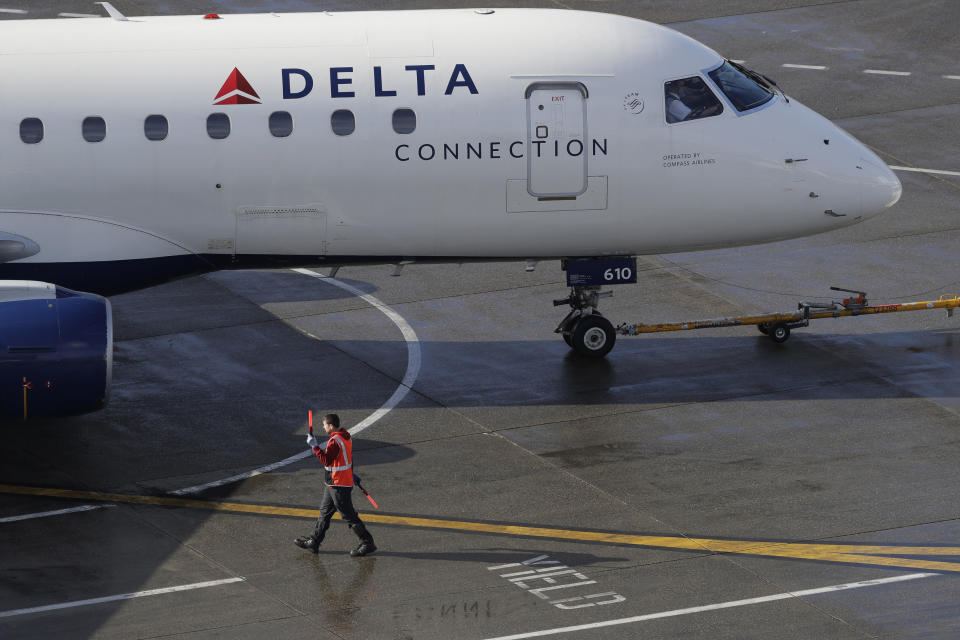Delta posts record quarterly earnings, boosted by strong travel
Delta Air Lines (DAL) on Thursday reported a record second quarter that beat Wall Street’s estimates, with earnings boosted by strong demand as the summer travel season shifts into high gear.
The Atlanta-based airline reported adjusted quarterly earnings of $2.35 per share on adjusted revenue of $12.49 billion, setting a new quarterly record in the face of a slowing economy.
Analysts expected adjusted quarterly earnings of $2.27 on revenue of $12.49 billion, according to a Bloomberg consensus forecast.
Delta’s revenue during Q2 jumped 8.7%, while earnings soared 32% year over year. The company’s results were bolstered by a domestic load factor —a key measure of demand — that skyrocketed to a record 89%.
As a result, the airline boosted its full year guidance to $6.75 to $7.25 a share, up from the prior $6 to $7. The company is also increasing the quarterly dividend it pays shareholders 15%, to 40 cents a share.
“With record passenger loads, customer satisfaction and $1 billion in revenue growth for the June quarter, demand for Delta’s customer-focused product and service has never been stronger,” said Glen Hauenstein, Delta’s president, in a release.
“Our third quarter is off to a great start with a new highest revenue day on record July 7th,” he added.
Delta, which has spent nearly $500 million combined on dividends and share buybacks during the quarter, is now on track to return $3 billion to shareholders this year.

Charge more for tickets?
The airline cited a 10% increase in premium ticket revenue amid double-digit percentage gains in loyalty and third party maintenance revenue. However, cargo revenue dropped 17% during the quarter, driven by lower volumes.
Some analysts, like CFRA’s Jim Corridore, believe Delta’s strong performance in the first half provides a runway for the airline to reward shareholders and hike ticket prices — even as the economy loses momentum.
Previously, Delta said it would keep capacity consistent during the summer travel season while holding the line on ticket prices.
“I want to see them raise prices faster,” Corridore said. “It would grow profitability and raise return on investment capital and on assets. These are the things that provide tangible returns for a shareholder.”
Revenue per available seat mile, or RASM, is among the key metrics analysts like Corridore focus on when airlines report earnings.
RASM or “unit revenue” measures the airline’s total revenue divided by its available seat miles. On an adjusted basis, Delta’s metric rose by 3.8% during the quarter.
Analysts attribute part of Delta’s increase in RASM to the grounding of Boeing’s (BA) troubled 737 MAX aircraft. Although Delta doesn’t fly the plane, other airlines do— and the adjustments to those airlines’ route schedules have benefitted Delta.
Delta’s stock, traded on the New York Stock Exchange, closed up 51 cents at $59.47, just shy of a 52-week high.
Editors note: Delta upped its full year guidance to $6.75 to $7.25 a share, up from the prior $6 to $7.
Adam is an on-air anchor and reporter for Yahoo Finance. Follow him on Twitter at @ajshaps.
Read the latest financial and business news from Yahoo Finance
Follow Yahoo Finance on Twitter, Facebook, Instagram, Flipboard, SmartNews, LinkedIn, YouTube, and reddit.